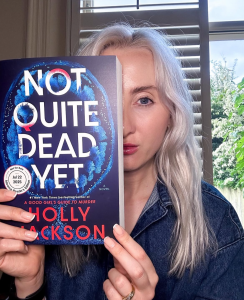Planners manage time, not assignments

Photo Courtesy: Pixabay
October 20, 2022
Planners become important not to manage your assignments, but your life.
I didn’t use a planner or schedule for my first two years of high school despite multiple attempts. At the start of the school year, I would buy a planner, use it for about two weeks and then waste those $15 on black space. The planner itself wasn’t the problem; it was the very thing that planners used to manage: time.
I never had time to write down my assignments and activities. I either worked to the bell or spent time on homework, which to me was much more productive than the process of a drawn-out schedule. If anything, the planner weighed me down more than my disorganization.
I could bypass a planner easier at that time. Most of my assignments were due the next day and I had a pretty good memory of my schedule and due dates. If I ever forgot what I had to do, I simply checked Schoology and my binders. I didn’t have to schedule when I would do homework, I just knew I had to complete it.
The first time I actually created a schedule was in the middle of my sophomore year. It was the first midterms since COVID-19 and personally my first midterm in high school. The time schedules were different, my study sessions were different, and I had to fit my non-academic activities into my day. So, I made my first schedule. It was a two-week daily plan that allowed me to follow a schedule that was planned in advance.
I certainly wouldn’t recommend this style of planner usually, but in certain situations where there’s a difference of routine and amount of things that can overwhelm people, small details are fundamental to stay as organized and calm as possible.
Reminders to drink water, eat a good breakfast, and fit in time-consuming activities such as sports or clubs are needed in order to survive. Even small details like a well-charged phone can be important when using this kind of planner.
On the other hand, in a less hectic situation, that becomes unnecessary. A planner, however, is still necessary when you eventually face other problems: long-term assignments. You can’t flip through the pages of each of your classes in your mind and just finish a huge assignment in one night. Well, you could, but you would most likely forget about it until a teacher or classmate reminded you and cram it in a few days. That cram session could totally ruin your plan for that evening. Practices, rehearsals, meetings, work, and other homework could either make you suffer or make you unable to finish the assignment. Now staying up until two o’clock in the morning may allow you to finish an assignment, but it’s definitely not completed and will start to hurt your grades and raise stress levels.
Homework itself isn’t horrible even if you cram all your long-term assignments in one night. What makes life without a planner difficult is the complexity of life itself. You need time to relax, sleep, and spend time with your family or friends.
Planners are one of the most commonly used ways to reduce stress.
Bryan Robinson, a psychologist and writer for Forbes, analyzed a study that proved about 10% more planners feel they have more time for a social life, self-care, have strong familial relationships, and are financially secure than procrastinators.
“It helps me organize my schedule for when I get home and have to do homework. Homework, tests, anything that has a date to it I will put on my calendar,” Liam Rodriguez ‘24 said.
He has used a planner since he could remember and utilizes a monthly as well as a daily planner to juggle academic assignments.
Even if you don’t feel the need to use a planner now, as reminders diminish and your brain gets crowded with more lists, the ability to use one effectively is necessary. Whichever style you choose: weekly, daily, or monthly (I personally use both monthly and weekly), I would suggest you incorporate it into your life, not just assignments. They are all factors to choose how to spend your time.











